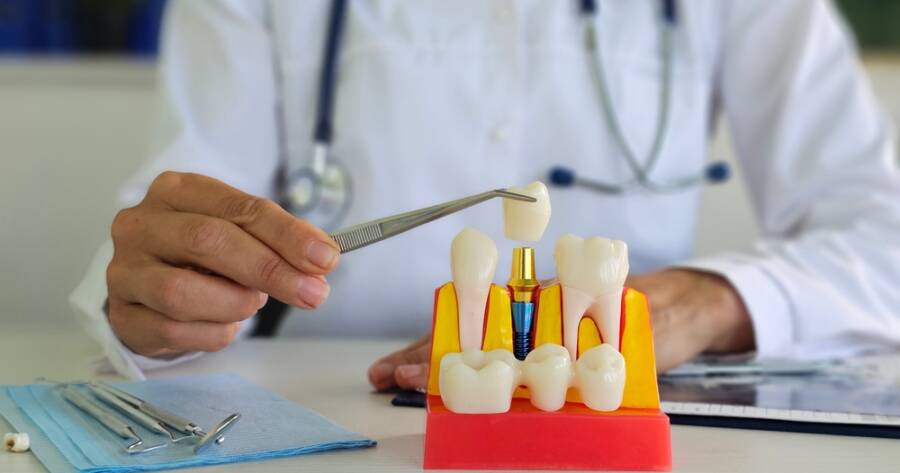Dental implant trials are revolutionizing patient care by improving implant performance, refining treatment plans, and advancing procedural technologies. With a focus on factors like risk management, patient-specific care, and innovative technologies such as digital imaging and guided surgery, clinical trials offer significant opportunities to enhance long-term implant success and transform the future of dental care.
How Dental Implant Trials Advance Patient Care
In recent years, dental implant trials have significantly advanced patient care by improving the understanding of implant performance, refining patient treatment plans, and enhancing procedural technologies. These trials are crucial for not only enhancing implant durability but also for identifying risk factors and improving patient outcomes.
For instance, a study analyzed the long-term clinical performance of dental implants over a period of up to 22.2 years, focusing on factors like implant survival rates and marginal bone levels. The findings revealed that the cumulative survival rates were impressive, with figures like 98.9% at three years and 94.0% at fifteen years, underscoring the long-term viability of dental implants and showcasing implant durability.
Key Risk Factors and Patient Care
Understanding risk factors is essential in advancing patient care in the world of dental implants. Trials have identified that patients with conditions such as diabetes mellitus and those who are heavy smokers face higher risks of implant failure.
Additionally, the use of certain procedures like guided bone regeneration and immediate implantation also increases these risks. By recognizing these factors, dental professionals can offer more tailored care plans and consider preventative measures to enhance long-term implant success by focusing on patient-specific factors. For example, closer monitoring and individualized strategies are crucial for patients with multiple implants or other identified risk factors.
Innovative Technologies in Implant Procedures
Dental implant trials are consistently pushing the boundaries of technological innovation. From digital imaging and guided surgery to computer-aided design and manufacturing, the precision and customization of implants have never been better. These advancements not only improve the accuracy of implant placement but also ensure that the implants are biocompatible and aesthetically pleasing, using materials like titanium and zirconia that provide strength and a natural appearance.
Moreover, studies on nanotechnology and tissue engineering indicate promising enhancements in material properties and regenerative capabilities, which can revolutionize patient care through innovative strategies.
RevBio’s TETRANITE Trial
RevBio’s clinical trial for TETRANITE, a self-setting, osteoconductive bone adhesive, represents a significant stride in dental implant stabilization. By facilitating immediate implant placements, this trial aims to reduce patient recovery times and overall treatment costs, offering a simplified approach compared to traditional methods involving bone grafts that require lengthy procedures. The collaborative efforts in this international trial have the potential to transform patient care practices in regenerative dentistry, not only in Europe but globally as these innovations are adopted.
The Role of Dental Registries
Dental registries such as the Dental Implant Restoration Registry (DIRR) are crucial in advancing the field by tracking complications associated with dental implants. By collecting extensive data on biological and prosthetic issues, such registries enable the development of diagnosis-driven therapy strategies and targeted studies. The data collected from thousands of implants offers valuable insights into improving diagnostic and treatment protocols, ultimately enhancing patient care outcomes by offering data-driven insights.
Technological Advancements in Implant Planning
Emerging technologies like Cone Beam CT scans, 3D printing, digital impressions, and laser dentistry have revolutionized dental implant planning and placement. These innovations improve precision, reduce patient anxiety, and minimize surgery time, contributing to enhanced success rates and patient satisfaction. For example, Cone Beam CT scans offer advanced imaging with reduced radiation, enabling better treatment planning, while 3D printing provides rapid custom dental device production, transforming traditional implant procedures.
Why You Should Learn More About Dental Implant Advancements Today
Understanding the advancements in dental implant trials and technology offers profound benefits for both patients and practitioners. By staying informed on the latest research and innovations, dental care professionals can provide more effective and personalized treatments. Meanwhile, patients can experience improved outcomes, greater comfort, and increased long-term success with their implants.
As trials continue to refine techniques and materials, the future of dental implants promises further enhancements in patient care and satisfaction. By keeping up with these advancements, individuals can make informed decisions that positively impact oral health and overall quality of life.
Sources
Insights on Implant Longevity and Risk Factors

